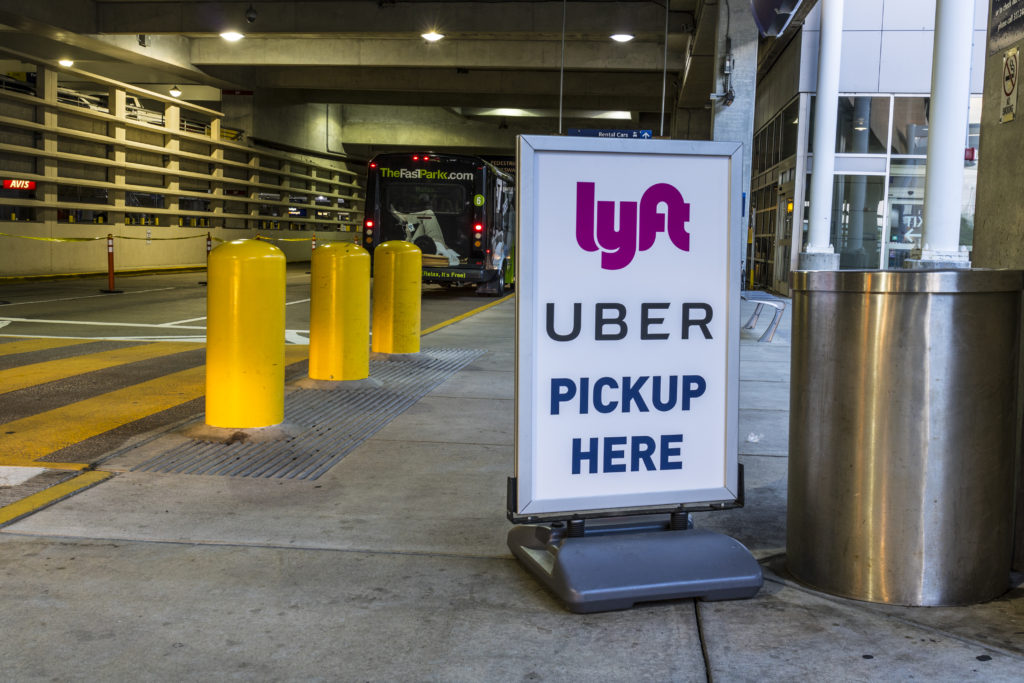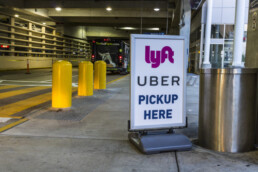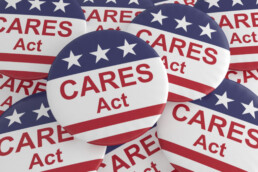Big Win in PA Court Case May Have Big Impact
A recent Pennsylvania Supreme Court decision may be a big win for all drivers who work for ride-hailing companies like Uber and Lyft. On July 27, 2020, the highest court in Pennsylvania held that a part-time Uber driver was not “self-employed,” The designation is significant because Uber has consistently argued in lawsuits across the country that drivers are independent contractors and self-employed, not employees.
By categorizing the estimated 2.6 million Uber drivers in the U.S. as being self-employed, Uber is not required to provide any federal or state benefits. In this case, however, the sole issue was whether his part-time work with Uber disqualified him from unemployment benefits because an applicant who engages in an independent business venture is not eligible for unemployment benefits. While the decision is not binding on other states, it could be a significant victory for all ride-hailing drivers as well as gig workers more broadly.

The case in Pennsylvania involves a laid-off behavioral specialist who started working for Uber part-time. The driver, however, was denied unemployment benefits because his part-time work with Uber was categorized as an “independent business venture.” The court, however, ruled that the driver was not self-employed because Uber had “significant control” over his work, and therefore eligible for unemployment benefits due to losing his full-time job as a behavioral specialist. The court acknowledged that drivers do have some autonomy such as setting work hours and rejecting rides, but overall, the court found that there were more significant aspects of the contract that Uber controlled. For example, Uber sets the rate for services, drivers cannot establish work relationships with passengers, and drivers cannot subcontract their work.
While the decision is good news for drivers, the court stopped short of saying the decision should be applied broadly because “individual decisions must be made in specific cases based upon the unique facts presented in each circumstance.” Similarly, the court did not hold that the driver was an “employee” of Uber, which is the question at the core of lawsuits across the country.
Currently, under federal and state laws, independent contractors are generally not eligible for certain employee benefits such as overtime pay, meal/rest breaks, and paid sick time. While that question remains unsettled, litigation is pending in California and around the world and millions of drivers wait anxiously for a favorable decision that would provide them with the benefits and protection they deserve under federal and state law.
FREE CONSULTATION
Srourian Law Firm, with locations in Los Angeles, Westwood, Woodland Hills, and Orange County is experienced in all aspects of employment law including the representation of ride-hailing drivers and have aggressively represented employees in Los Angeles, Hollywood, Santa Monica, Orange, Irvine, Anaheim, Santa Ana, Newport Beach, Costa Mesa, Fullerton, Tustin, Mission Viejo, San Clemente, Garden Grove, Laguna Niguel, Brea, Fountain Valley, Aliso Viejo, Yorba Linda, Westminster, Laguna Hills, Cypress, and La Habra.
If you or someone you know suffered employment violations as a ride-hailing driver, you may have certain employee rights under state and federal law, and may be entitled to compensation as a part of the class action lawsuit. Please contact us to speak with one of our lawyers for a free consultation.
Federal Government Clarifies CARES Act Eligibility

As the country continues to struggle with the challenges due to COVID-19, labor laws have been adapting to the pandemic, and employees must be aware of their rights. One area that has been significantly impacted by COVID-19 is the laws regarding unemployment benefits. The federal and state laws that govern unemployment benefits have always been complicated, and are especially difficult to understand now with the Coronavirus Aid, Relief, and Economic Security Act (CARES) that was enacted in March 2020. CARES expanded weekly unemployment benefits by as much as $600 a week to eligible workers and have proven to be vital to many families during the pandemic. While there have been a myriad of issues and concerns regarding CARES, there is no denying that to many unemployed workers relied on the additional funds as the nation’s unemployment rate sky-rocketed. Moreover, many states were overwhelmed with the volume of applications, and benefits were delayed.
While it is uncertain whether the CARES Act will be extended, the federal government provided some clarification on July 22, 2020. For example, a worker may refuse to accept a job offer because the job is unsafe and continue to collect the additional financial benefits provided under CARES. The states, however, will determine what is considered to be safe work conditions, and if a state determines the job or work conditions are not “suitable,” then the worker may receive the expanded unemployment benefits under CARES. Most states already had suitable work place provisions in place prior to COVID-19, and the general criteria is whether the work unreasonably exposes the worker to unsuitable safety risks. Labor laws have always guaranteed a safe work environment, which is particularly important during a pandemic. Notably, a worker cannot refuse a job offer and seek expanded unemployment benefits due to a general fear of COVID-19.
According to the U.S. Department of Labor, the state may also determine that a job is unsuitable if a worker refuses the job due to virus-related reasons such as increased risk of COVID-19 due to an underlying medical condition. The state may also determine a job is unsuitable if a worker claims “good cause,” although the federal government has not specifically defined what is considered to be “good cause” which means that states must decide that issue. Fortunately, workers in California benefit from some of the country’s strongest state labor law protections, and this is one example of how an experienced labor law attorney will be able to argue your case by understanding state laws to protect your rights when federal law is not clear.
The federal government also clarified that some out-of-work employees are not eligible for CARES benefits depending on what caused the loss of the job. For example, if a worker is unemployed due to a reason not related to COVID-19, that worker is not eligible for expanded benefits even if jobs are not available due to COVID-19 related circumstances. The reason for this is because CARES was enacted to assist workers who faced unemployment specifically due to the pandemic, and is not broad enough to include workers who did not lose their jobs due to reasons unrelated to COVID-19. Fortunately, those workers may still be eligible for regular unemployment benefits.
Prior to COVID-19, workers who quit their jobs without “good cause” were generally not eligible for unemployment benefits. However, under the CARES Act, certain reasons related to COVID-19 would allow a worker to qualify for expanded unemployment benefits under CARES. For example, a worker who quits a job because of mandatory quarantine, or the need to provide care to a family member with COVID-19 could be considered “good cause” for the purposes of CARES benefits.
While the federal government continues to debate whether to extend benefits under the CARES Act or perhaps craft new legislation, the states may decide to adopt new policies regarding eligibility in the meantime. However, since unemployment benefits are a hybrid of federal and state law, the states must adhere to federal law and provide at least the minimum benefits afforded under federal laws. Also, as more states work towards re-opening and more businesses are hiring, states may become stricter in determining eligibility for unemployment benefits. As we have learned, during a pandemic, it is important to be informed and be ready to take full advantage of any benefits you are eligible for. Plan ahead and consult an experienced labor law attorney so you will have an advocate that will not only understand the quickly changing laws and benefits, but will be able to guide you and protect your rights during these uncertain times.
FREE CONSULTATION
Srourian Law Firm, with locations in Los Angeles, Westwood, Woodland Hills, and Orange County is experienced in all aspects of employment law including unemployment benefits and have aggressively represented employees in Los Angeles, Hollywood, Santa Monica, Orange, Irvine, Anaheim, Santa Ana, Newport Beach, Costa Mesa, Fullerton, Tustin, Mission Viejo, San Clemente, Garden Grove, Laguna Niguel, Brea, Fountain Valley, Aliso Viejo, Yorba Linda, Westminster, Laguna Hills, Cypress, and La Habra.
If you or someone you know suffered employment violations involving unemployment benefits, you may have certain employee rights under state and federal law, and may be entitled to compensation as a part of the class action lawsuit. Please contact us to speak with one of our lawyers for a free consultation.
Appeals Court Gives Delivery Drivers the Green Light to Trial
A recent decision by a federal appeals court is good news for delivery drivers seeking compensation for unpaid wages and unreimbursed expenses. In an important decision dated July 17, 2020, the First Circuit U.S. Court of Appeals held that Amazon delivery drivers are considered “transportation workers engaged in interstate commerce” even if they never physically cross state lines to complete deliveries.
The decision is important because this means that Amazon delivery drivers may proceed with a class action lawsuit without having to go through private arbitration. Defendant Amazon argued that plaintiffs may only resolve disputes through arbitration, and are prohibited from filing a law suit according to the Federal Arbitration Act (FAA). The appeals court, however, disagreed with Amazon’s argument that the FAA required arbitration in this case because the FAA does not require arbitration for “entire categories of workers in the transportation industry just because those workers might not have physically crossed state lines.”
Amazon unsuccessfully argued that “last-mile delivery workers” who do not always cross state lines when traveling the final legs of the delivery did not “engage in interstate commerce” and therefore must settle claims in arbitration, not court. The court’s decision, however, firmly includes these last-mile delivery drivers as engaging in work “within the flow of interstate commerce.” The key to the decision was whether or not the delivery drivers “engaged in” interstate commerce if they did not actually travel across state lines to deliver goods. According to the appeals court, the drivers were entitled to sue employers for claims of labor law violations and it was not important that they did not actually physically cross a state line in order to make the delivery. This reasoning is based on a 2001 U.S. Supreme Court decision that held employees were engaged in interstate commerce even when employees did not actually cross a state line as long as the intrastate portion of their work was part of an overall “interstate journey.” In other words, the court did not want to penalize the drivers for being assigned delivery routes by Amazon that did not require them to cross state lines, but nonetheless was part of interstate delivery of goods.

The class action suit against Amazon was originally filed in 2017 by drivers in Massachusetts who claimed Seattle-based Amazon misclassified delivery drivers as independent contractors. This misclassification allowed Amazon to refuse to provide drivers with vehicles or reimburse for expenses incurred by drivers such as insurance, gas, and mileage. Amazon argued that arbitration was the appropriate and only forum available to plaintiffs because of the FAA. Employers favor arbitration because arbitration usually favors employers, awards are binding and not subject to appeal, and arbitration is generally much less expensive than a trial. Moreover, if an employer loses at trial, often the award includes plaintiff's attorney's fees.
Additionally, Amazon unsuccessfully argued that Washington state law prohibited the class action lawsuit because the employees were bound by a class action waiver that was part of their employment contract. A class action waiver prohibits employees from filing a class action against employers, but the appeals court refused to apply Washington state law. Instead, the court relied on Massachusetts state law, which is considerably more favorable to employees. Under Massachusetts state law, the appeals court held that the class action waiver was “contrary to the commonwealth’s fundamental public policy” and invalid because it was not possible to enforce the arbitration provision independently from the rest of the relevant section of the contract dealing with dispute resolution.
This decision has significant impact on the pending litigation, as well as other class action lawsuits across the country where employees are misclassified by employers in order to violate labor laws and avoid paying certain wages or reimburse expenses, and will greatly assist employees who have had their rights violated by employers.
FREE CONSULTATION
Srourian Law Firm, with locations in Los Angeles, Westwood, Woodland Hills, and Orange County is experienced in all aspects of employment law including unpaid wages and unreimbursed expenses and have aggressively represented employees in Los Angeles, Hollywood, Santa Monica, Orange, Irvine, Anaheim, Santa Ana, Newport Beach, Costa Mesa, Fullerton, Tustin, Mission Viejo, San Clemente, Garden Grove, Laguna Niguel, Brea, Fountain Valley, Aliso Viejo, Yorba Linda, Westminster, Laguna Hills, Cypress, and La Habra.
If you or someone you know suffered employment violations as a delivery driver or employee including unpaid wages or unreimbursed expenses, you may have certain employee rights under state and federal law, and may be entitled to compensation as a part of the class action lawsuit. Please contact us to speak with one of our lawyers for a free consultation.



